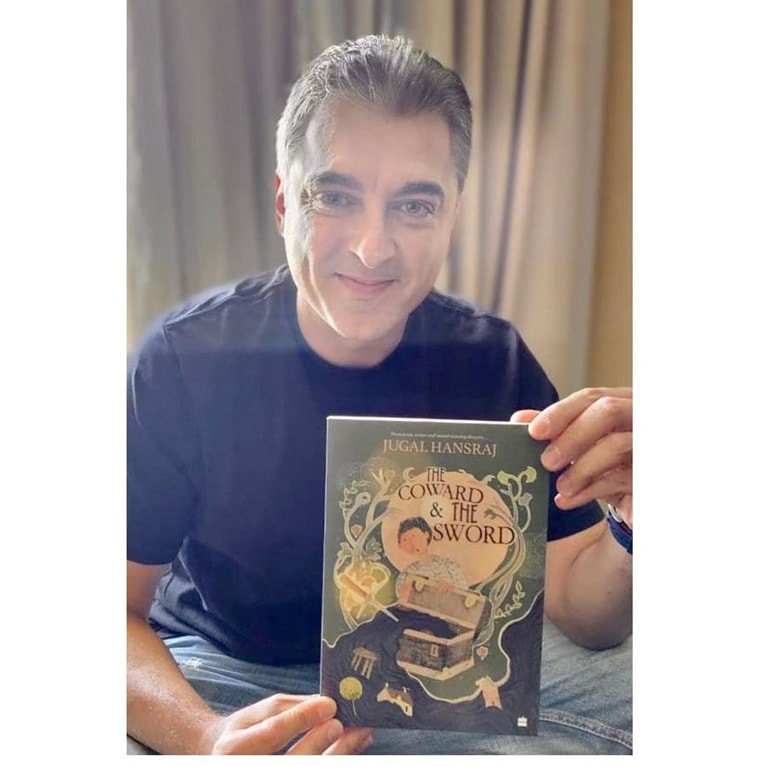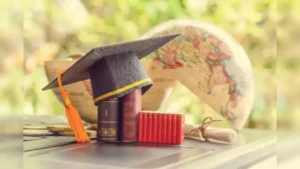Jugal Hansraj, the handsome, charming, articulate and kind-hearted actor is a delight to. An actor, writer and now an author, he began his Bollywood career as a child artiste in Masoom (1983), but is also known for his roles in Papa Kehte Hain (1996) and Mohabbatein (2000).
Ahead of the launch of his new book, The Coward and The Sword (published by HarperCollins), we caught up with the actor who revealed what motivated him and inspired the story of his book, and how important it is to acknowledge that children go through difficult times, too.
What inspired you to write this book, and how long did it take to finish?
I started writing it in early 2018 and went back and forth between ideating sessions. One of my driving forces was the birth of my son. It was a learning curve for me, albeit filled with joy that I could stay home and help my wife in bringing up our boy.
His birth changed something fundamental about me, I was introduced to perspectives I wasn’t very sure of earlier. I wanted to write something for him, for when he grows up and is introduced to the world of books and reading. I want him to be proud when he does, that his dad wrote something especially for him. You know the general adage is to read children bedtime stories? I thought I’ll write one out for him.
The manuscript wasn’t commissioned yet and I was treating it as a labour of love. I wasn’t trying to rush the process, but when the Covid-19 lockdown happened and there was nowhere to step out, I sat down and finished it.
I have been studying and practising Buddhism for a long time and a particular quote by 13th-century Japanese reformer Nichiren Daishonin has stayed with me over the years: ‘A sword is useless in the hands of a coward.’ I took inspiration from it and wrote the story around a similar concept. It resonated with me, because it implies that in the absence of bravery, how can goodness exist? The ability to find courage within oneself was one of the main premises of the book.
Were you always drawn towards children’s literature? What genres do you usually read?
I was a voracious reader growing up, P.G Wodehouse being one of my absolute favourites. It was my happy place when I was a child, his prowess over the English language felt like poetry to me. I read Arthur Conan Doyle, Hardy Boys, Agatha Christie, Ruskin Bond — all classics when I was in school and the literature bug never left me.
Is writing for children more difficult?
It’s a little difficult to answer this question as times have changed since we grew up. We live in a digitised world with iPads and laptop screens dominating our time. I’m not sure how many children are reading physical books in the era of video games.
That being said, this shift to a virtual world creates an immediate challenge: how do we reach out to them? For my book, I consciously created a world devoid of technology, with magical elements and fictitious characters. I was aiming to write it similar to how you’d write a fable, inspired by elements of folklore and fantasy. Something that has a ‘once-upon-a-time’ emotion to it.
Is the main protagonist ‘Kadis’ inspired by anyone?
I wanted to highlight the fact that children go through difficult times, too, and the phenomenon transcends social boundaries. A child pampered by his family might be experiencing anxiety similar to a grownup. It’s important to keep track of your child’s mental health, and I wanted to write a story that could normalise it enough to be a part of dinner table conversations.
I consciously stayed away from a first-person narrative that is popular among contemporary writers because I wanted the story to be comforting to my readers. Something that their grandparents could narrate to them while tucking them in for bed.
I want this book to be a safe place for children, a quiet nook they can turn to when they feel overwhelmed. I believe that every child, regardless of their circumstances, has the potential to do good in this world. They have to find their courage and hold onto it.
You’ll find no mention of violence in the story, even though the premise revolves around kings, queens and princes. I have kept all mentions of gore at bay. I enjoy reading fantasy fiction. George RR Martin, Tolkien are my favourites. There is no comparison between how I treated the genre and the way these literary giants do, but I’ve treaded carefully.
What do you think of the illustrations in the book?
Ruchi Shah has done a commendable job with the art and design of the book. When I was writing it, I didn’t envision that the text could be accompanied with illustrations, but then Harper Collins came on board with Ruchi and I was floored. Her work has added so much value to the story, I can only be grateful for it.
I don’t believe in interrupting a creative process, I’d rather wait to see how the artist’s vision has panned out and then trust them with it. When I first saw how the illustrations were turning out to be, they seemed gentle to me, radiating kindness in a way I had intended the book to inspire. I knew then that the story was in the right place.
Does The Coward and the Sword have a sequel in the works? What about a film adaptation?
I’m currently writing the sequel and I’m hoping to be done by next year. Fingers crossed that it doesn’t take as much time to write. There’s no plans of immediately turning the book into a movie but the possibilities are endless. I’d gladly consider a film adaptation, if at all the opportunity comes up.
What’s your take on Bollywood stars donning the author’s hat? Do you think it’s an organic shift?
Oh, absolutely. Almost all Bollywood ‘stars’, actors and actresses are extremely creatively inclined. I believe that it’s a natural progression, an outlet for their experiences and creativity when they decide to chronicle their experiences and write a book.
News courtesy : The Indian Express










